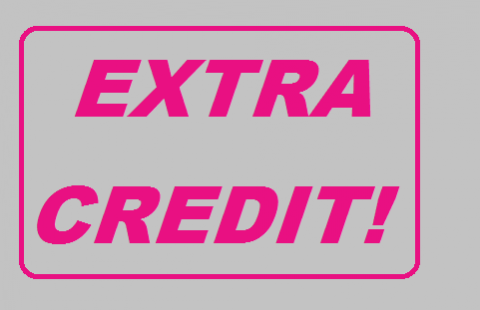What to Do When Your Professor Offers Extra Credit
Nov 25,2015
🍨Most of the ti🅠me when a professor announces an extra credit opportunity, the entire class breathes a collective and joyful sigh of relief.
For some students, extra credit provides an opportunity to make up for missed assignments or poor test grades. For others, it could mean t𓆉he difference between an A and a B, or between a failing grade and a passing grade.
However, if you are already content with your grade, or if you aren’t sure how muc♎h the extra credit will help you, it can be difficult to decide whether you want to take advantage of it.
Ifꦬ you’re on the fence about completing an extra credit assignment, there are three things you need to do.
1. Evaluate your current grade.
If you already h♌ave an A in the course, extra credit may not make that much of a difference in your final g💙rade. However, if you are straddling the line between one letter grade and another, extra credit may be all you need to push your grade over the line.
If you aren’t sure what your current grade is, set up an appointme𝔉nt with your professor and ask whether the extra credit could make a difference in your final grade. If it could, it may be time to begin the assignment.
2. Check your schedule.
Once you know what the extra credit involves, you sho♊uld be able to estimate the amount of time it will take you to complete.
If the assignment is a worksheet or an extra homework assignment, you may only need to spend a few h💫ours working on it. 🌞However, if the assignment is a five page research paper, you will need to carve out a bigger chunk of time to complete it.
If your current schedule doesn’t allow you to dev🅠ote much time𒉰 to an extra credit assignment, you have two options. You can either clear off some of your already scheduled tasks, or you can forgo the extra credit assignment and hope for the best.
If you decide to skip the extra credit assignment, look into other possible options for improving your grade, such as performing well on future assignmen𝔍ts.
3. Consider future assignments.
Whether you decide to complete the 𒆙extra credit or not, you will likely have a few more required assignments or assessments that will faꦫctor into your overall grade for the course.
Many professors include a class schedul🐬e with the𝄹 syllabus that is provided at the beginning of the semester. Take a look at your upcoming assignments on the schedule, and try to determine their level of difficulty.
If the assignments seem complicated to you, or if you know for a fact that you have a difficult assignment coming up, doing the extra credit can add the padding your grade may need ෴when it’s time to complete those ✱difficult assignments.
When an extra credit opportunity knocks, keeping these three tips in mind will help y🌃🍃ou know what to do.





